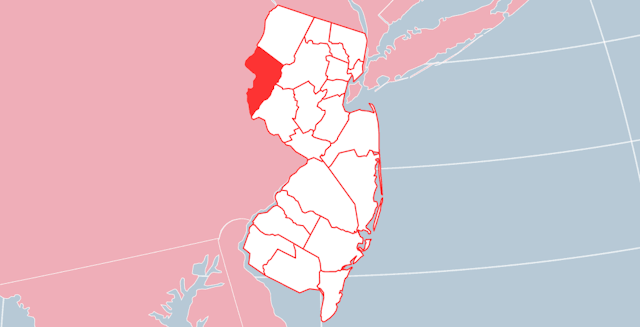Rehabs in Warren
The county of Warren is located in New Jersey. According to the US Census Bureau, it has one of the biggest populations in the state with an estimated 105,000 residents as of 2019.
However, this is not always a good thing, especially considering that since the drug pandemic in America started, rates of substance misuse and overdose have increased.
So, there are so many drug addicts that are still alive today. But if they don't receive aid from detox and drug rehabilitation centers, they will surely end up as statistics. These individuals must receive therapy before falling into drug abuse.
Read the article to learn more about Warren county rehabs. Be aware of the programs they offer and choose the one that suits you the best.
Rehab Centers
According to County Health Rankings and Roadmaps, there were 93 drug deaths in Warren from 2015 to 2017, which is a lot more than any other county during that period. Even if this simply hints at the extent of the issue, it shows its intensity.
To prevent this intensity, rehabs in the county provide care for everyone. Choosing a clinic is difficult. The fact that there are currently countless healing choices complicates this even more.
The process can be stressful for most families and those who are battling addiction. The goal at NJ Rehabs is to make the process simple. They direct you to the best treatment centers that suit your needs.
Local clinics offer a range of detox programs, residential and outpatient therapy, and other services.
Detox
The first stages of detox can be difficult for many people. As a result, the plan may have medical and mental health experts on call. They should give you effective management and support. Also, they give you the control you need as your body detoxifies the substances you previously took.
For instance, you probably suffer withdrawal many hours after your last injection of heroin. Withdrawal symptoms include anxiety, muscle aches, agitation, trouble sleeping, excessive yawning, etc.
Inpatient
Inpatient care offers short-term and long-term treatment.
For people who can't spend too much time in a clinic due to financial, career, or personal reasons, a short-term healing program may be the best option. All around the country, there are short-term therapy choices accessible. You can pick the best solution for you or your family.
For those who need prolonged medication for addiction, long-term recovery centers provide many healing alternatives. In long-term treatment, many therapies, medical detox, and care for dual diagnoses are frequently offered.
You can strive toward long-term recovery and establish sobriety with the aid of long-term residential programs. You should also learn about relapse prevention.
Outpatient
Outpatient centers can be a great addition to a complete strategy for addiction treatment. Plans for outpatient addiction come on different levels, but they should be tailored to meet the needs of each patient.
For those who demand follow-up care after completing an inpatient one or for the treatment of mild to severe substance use disorders, outpatient treatment is helpful.
Partial Hospitalization Program
After finishing a residential one, a person with a serious dependence may still require therapy but may no longer require full-time care.
PHPs are effective for patients who need to continue their healing at a lower level.
People who relapse after finishing inpatient one respond favorably to PHP.
Payment Options
Patients shouldn't postpone healing due to financial concerns. Private pay, insurance, Medicare, Medicaid, financial assistance, state correctional or juvenile justice money, and access to recovery vouchers are just a few payment options that clinics accept. Plans may point patients in the direction of financing options that will make the recovery affordable.

